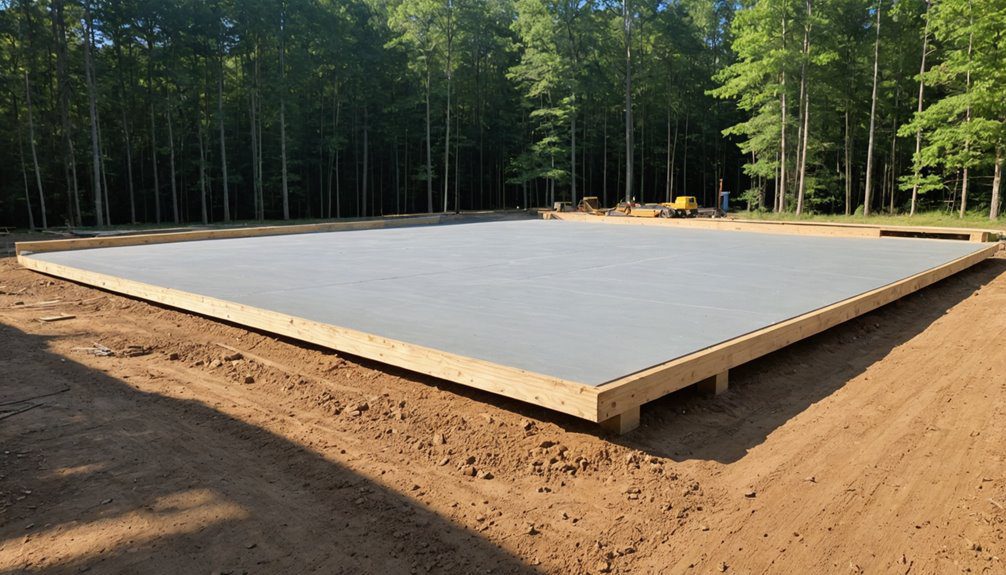When you're considering a home project in Columbia County, Georgia, understanding the residential contractor bond is essential. This bond not only protects you from potential contractor failures but also ensures that your chosen contractor adheres to local regulations. You might wonder how these bonds impact your project and what steps are necessary to secure one. As you explore the ins and outs of this topic, you'll uncover critical insights that can influence your decision-making process and safeguard your investment. So, what should you know about the requirements and benefits that come with these bonds?
What Is a Residential Contractor Bond?

A residential contractor bond acts as a safety net for homeowners, ensuring that contractors fulfill their obligations. This bond is a legal agreement between you, the homeowner; the contractor; and a bonding company. When a contractor applies for a bond, they're essentially securing a promise to complete the job as agreed. If they fail to meet their commitments, you can file a claim against the bond.
The bond acts as a form of financial protection. It guarantees that if a contractor doesn't perform their work satisfactorily or leaves the project unfinished, you can get compensated for your losses. This means you don't have to bear the financial burden alone if things go south.
In many areas, including Columbia County, having a residential contractor bond is often a requirement for contractors looking to operate legally. It helps ensure that only reliable and trustworthy contractors enter the marketplace. Additionally, surety bonds, such as performance bonds, provide financial security for project completion and protect against potential losses.
Importance of Contractor Bonds
Understanding the importance of contractor bonds can significantly impact your experience as a homeowner. When you hire a contractor, a bond serves as a safety net, ensuring that the work will be completed as promised. If a contractor fails to meet their obligations, the bond can provide you with financial protection. This means you won't have to bear the full cost of potential losses or unfinished projects.
Contractor bonds also establish credibility. When a contractor is bonded, it indicates they've met specific requirements and adhere to industry standards. This can give you peace of mind, knowing you're working with a professional who's committed to delivering quality work.
Additionally, having a contractor bond can expedite dispute resolution. If issues arise during the project, you can file a claim against the bond, making it easier to recover funds. Moreover, these bonds help ensure financial security for both homeowners and contractors, reinforcing the importance of compliance in the construction industry.
Legal Requirements in Columbia County

In Columbia County, contractors must comply with specific legal requirements to operate legally. First, you need to obtain a valid contractor's license, which ensures you have the necessary skills and knowledge to perform your work. This license requires passing an exam and meeting specific experience criteria.
Next, securing a contractor bond is essential. This bond protects your clients in case you fail to complete the job or breach the contract. It's a safeguard for homeowners and serves as a testament to your credibility in the industry. Additionally, obtaining a surety bond demonstrates your commitment to fulfilling contractual obligations and enhances your professional reputation.
You should also check zoning laws and building codes in Columbia County. These regulations dictate what you can build and where, ensuring your projects meet safety and community standards. Ignoring these can lead to fines or project delays.
Lastly, always carry liability insurance. This coverage protects you and your clients from potential accidents or damages during the project.
Types of Contractor Bonds
Contractor bonds come in various types, each serving a specific purpose in protecting both contractors and clients. Understanding these types can help you choose the right bond for your needs.
One common type is the performance bond, which ensures that you'll complete a project according to the contract terms. If you fail to do so, the bond will cover the financial loss to the client.
Another essential bond is the payment bond. This guarantees that you'll pay all your subcontractors and suppliers for their work. It protects clients from potential liens on their property due to unpaid bills.
The license bond is also crucial, as it ensures you comply with local regulations and licensing requirements. This bond protects the public from potential misconduct by ensuring that you adhere to industry standards.
Lastly, the maintenance bond covers repairs or defects in your work for a specified period after project completion. This bond gives clients peace of mind, knowing they're protected against future issues. Additionally, obtaining performance bonds often involves a simplified application process that can lead to favorable rates for contractors.
How to Obtain a Contractor Bond

Obtaining a contractor bond might seem daunting, but it's a straightforward process when you know the steps.
First, you'll need to choose a reputable bonding company or surety provider. Research different companies, read reviews, and ask for recommendations to find one that suits your needs.
Next, you'll want to gather necessary documentation. Typically, this includes your business license, financial statements, and any relevant certifications. Having these documents ready will speed up the application process.
Once you have everything in order, complete the application form provided by the bonding company.
After submitting your application, the surety will evaluate your financial stability and business practices. They may also conduct a background check.
Be prepared to answer any questions they might've during this stage. If approved, you'll receive a quote detailing the terms of the bond. Additionally, ensure you understand the annual bond costs associated with your specific type of contractor bond.
Costs Associated With Bonds
Understanding the costs associated with contractor bonds is crucial for budgeting your projects effectively. When you apply for a contractor bond, you'll encounter several expenses that you need to factor into your overall project costs.
First, there's the premium you'll pay for the bond itself. This is usually a percentage of the total bond amount, which can range from 1% to 15%, depending on your credit score and experience. If you have a strong credit history, you're likely to secure a lower rate.
Next, you may face additional fees for the application process, such as underwriting fees or processing charges. These can vary by bonding company, so it's wise to shop around for the best deal.
Lastly, some contractors overlook the costs related to maintaining the bond. Should you need to renew it after a year or two, you'll want to budget for that as well. Additionally, be aware that bid bonds act as a safeguard against potential financial loss if a winning bidder fails to start the project.
Common Bonding Issues

Many contractors face challenges when it comes to securing and maintaining their bonds. One common issue is inadequate financial documentation. If your financial records aren't organized or don't reflect your business's true financial health, bonding companies may hesitate to issue a bond. You need to ensure your financial statements are clear and accurate to avoid this problem.
Another frequent challenge is prior claims or defaults. If you've had claims against your bonds in the past, it can raise red flags for sureties. They want to see a history of reliability and trustworthiness, so addressing any past claims is crucial.
Additionally, failing to comply with local regulations can create bonding issues. If you neglect to meet licensing or insurance requirements, you risk losing your bond or facing higher premiums.
Lastly, market fluctuations can impact your bonding capacity. Changes in the construction industry, economic downturns, or shifts in demand for certain services can affect your bond's terms. Staying informed about market conditions and adapting your business accordingly can help mitigate these challenges. By understanding these common bonding issues, you can take proactive steps to secure and maintain your contractor bond effectively. Furthermore, utilizing resources from experienced bonding teams can provide valuable support in navigating these challenges.
Tips for Homeowners
When hiring a contractor, it's essential to prioritize your protection by ensuring they've a valid Columbia County residential contractor bond. This bond serves as a safety net, providing financial recourse if the contractor fails to meet their obligations.
Start by researching potential contractors online. Look for reviews and ratings from previous clients to gauge their reliability and quality of work. Don't hesitate to ask for references, and reach out to those references to hear about their experiences firsthand.
Next, get multiple quotes before making a decision. This not only helps you understand the market rates but also allows you to compare the services offered. Be wary of unusually low bids; they could indicate a lack of experience or potential issues down the road.
Make sure to outline your project clearly in a written contract. This should include timelines, payment schedules, and specific details about the work to be done. Additionally, ensure that the contractor has the appropriate license and permit bonds to comply with local regulations.
Resources for Contractors

For contractors looking to establish a successful business in Columbia County, a variety of resources can help you navigate the landscape.
Start by connecting with the Columbia County Chamber of Commerce. They offer networking events and support for local businesses, helping you meet potential clients and other contractors.
Next, consider utilizing online platforms like the Georgia Secretary of State's website to access important licensing and regulatory information.
Familiarizing yourself with local building codes and regulations is crucial, so check out the Columbia County Building Department's website for the latest updates and requirements.
Additionally, joining industry associations can provide you with valuable training opportunities and access to industry news.
Organizations like the Home Builders Association of Georgia offer resources tailored to contractors. Furthermore, understanding Ohio Surety Bond requirements can be beneficial for ensuring compliance with local regulations and securing necessary bonds for your projects.
Conclusion
In Columbia County, securing a residential contractor bond is essential for both contractors and homeowners. It not only protects you against potential issues but also establishes trust in your contractor's work. By understanding the legal requirements and types of bonds available, you can make informed decisions for your projects. So, whether you're a contractor or a homeowner, investing in a bond is a smart move that ensures peace of mind and a smoother construction experience.


